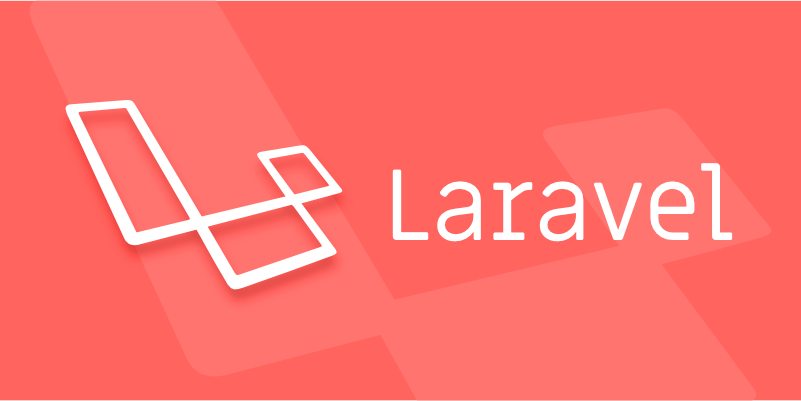Laravel's routing system can improve code organization and performance through routing packets, resource routing, model binding and routing cache. Use Route::middleware(), prefix() and other methods to uniformly manage permissions and path prefixes; Route::resource() can quickly generate CRUD routes; customize model binding fields through Route::model() to improve readability and security; finally run php artisan route:cache in production environment to improve routing loading speed.

Laravel provides a very flexible routing system. In addition to the basic GET and POST routing definitions, there are many advanced techniques and patterns that can improve code organization and maintainability. If you have used basic routing but want to further understand Laravel's routing capabilities, the following content will be helpful to you.

Use Route Groups to manage permissions and prefixes
In development, we often encounter situations where we need to uniformly add middleware, prefix or namespace to a set of routes. At this time, you can use routing packets to process centrally.

For example, all pages of a background module need to be verified to log in, you can write this way:
Route::middleware('auth')->prefix('admin')->group(function () {
Route::get('/dashboard', [AdminController::class, 'dashboard']);
Route::resource('/users', UserController::class);
});The benefits of doing this are:

- Clear logic: all admin-related routes are together for easy search and maintenance;
- Middleware is applied uniformly to avoid repeated additions;
- The prefix is ??automatically added to
/admin, and there is no need to manually splice each path.
You can also specify a namespace for the controller in combination with namespace() , but it is recommended to use the full class name directly, which is more intuitive.
Resource Routes simplifies CRUD operations
Route::resource() is a good helper when you need to create a standard CRUD route for a resource. It will automatically generate 7 routes corresponding to common operations (index, create, store, show, edit, update, destroy).
For example:
Route::resource('posts', PostController::class);
You can also control which methods to generate by only() or except() :
Route::resource('comments', CommentController::class)->only(['index', 'show', 'destroy']);
This is especially useful for quickly building prototypes or front-end separation projects, saving a lot of time to redefine.
Custom model binding improves readability and security
By default, Laravel allows you to get model instances through URL parameters, such as:
Route::get('/users/{user}', function (User $user) {
return $user->name;
}); Here {user} will be parsed into the User model and the data will be queried based on the ID. However, if the user passes in an invalid ID, it will automatically return 404.
If you want to customize the query field (such as replacing the ID with slug), you can bind it in the RouteServiceProvider:
use App\Models\Post;
public function boot()
{
parent::boot();
Route::model('post', Post::class, function ($value) {
return Post::where('slug', $value)->firstOrFail();
});
}This way you can use it directly in the route:
Route::get('/posts/{post}', [PostController::class, 'show']); The URL can be /posts/my-first-post instead of /posts/1 , which is better for SEO and user experience.
Router cache accelerates access speed (suitable for production environments)
When you have many routing files and complex structures, loading the routing will consume a certain amount of performance. Laravel provides a command to compile routes into a single PHP file, greatly improving route loading speed:
php artisan route:cache
A few points to note:
- This command is only applicable to production environments and is not recommended to enable it during development;
- This command must be rerun every time the route is modified;
- The route defined by anonymous functions cannot be cached and must be defined in a controller manner.
So if you plan to launch a project, remember to execute routing cache in the last step, the effect will be very obvious.
Basically all that is it. Although Laravel's routing function is powerful, most of the time, you can deal with most scenarios by mastering a few core skills. The rational use of grouping, resource routing and model binding can make the code cleaner and the logic clearer.
The above is the detailed content of Advanced Routing Techniques and Patterns in Laravel. For more information, please follow other related articles on the PHP Chinese website!

Hot AI Tools

Undress AI Tool
Undress images for free

Undresser.AI Undress
AI-powered app for creating realistic nude photos

AI Clothes Remover
Online AI tool for removing clothes from photos.

Clothoff.io
AI clothes remover

Video Face Swap
Swap faces in any video effortlessly with our completely free AI face swap tool!

Hot Article

Hot Tools

Notepad++7.3.1
Easy-to-use and free code editor

SublimeText3 Chinese version
Chinese version, very easy to use

Zend Studio 13.0.1
Powerful PHP integrated development environment

Dreamweaver CS6
Visual web development tools

SublimeText3 Mac version
God-level code editing software (SublimeText3)

Hot Topics
 Creating Custom Validation Rules in a Laravel Project
Jul 04, 2025 am 01:03 AM
Creating Custom Validation Rules in a Laravel Project
Jul 04, 2025 am 01:03 AM
There are three ways to add custom validation rules in Laravel: using closures, Rule classes, and form requests. 1. Use closures to be suitable for lightweight verification, such as preventing the user name "admin"; 2. Create Rule classes (such as ValidUsernameRule) to make complex logic clearer and maintainable; 3. Integrate multiple rules in form requests and centrally manage verification logic. At the same time, you can set prompts through custom messages methods or incoming error message arrays to improve flexibility and maintainability.
 Working with pivot tables in Laravel Many-to-Many relationships
Jul 07, 2025 am 01:06 AM
Working with pivot tables in Laravel Many-to-Many relationships
Jul 07, 2025 am 01:06 AM
ToworkeffectivelywithpivottablesinLaravel,firstaccesspivotdatausingwithPivot()orwithTimestamps(),thenupdateentrieswithupdateExistingPivot(),managerelationshipsviadetach()andsync(),andusecustompivotmodelswhenneeded.1.UsewithPivot()toincludespecificcol
 Sending different types of notifications with Laravel
Jul 06, 2025 am 12:52 AM
Sending different types of notifications with Laravel
Jul 06, 2025 am 12:52 AM
Laravelprovidesacleanandflexiblewaytosendnotificationsviamultiplechannelslikeemail,SMS,in-appalerts,andpushnotifications.Youdefinenotificationchannelsinthevia()methodofanotificationclass,andimplementspecificmethodsliketoMail(),toDatabase(),ortoVonage
 Understanding Dependency Injection in Laravel?
Jul 05, 2025 am 02:01 AM
Understanding Dependency Injection in Laravel?
Jul 05, 2025 am 02:01 AM
Dependency injection automatically handles class dependencies through service containers in Laravel without manual new objects. Its core is constructor injection and method injection, such as automatically passing in the Request instance in the controller. Laravel parses dependencies through type prompts and recursively creates the required objects. The binding interface and implementation can be used by the service provider to use the bind method, or singleton to bind a singleton. When using it, you need to ensure type prompts, avoid constructor complications, use context bindings with caution, and understand automatic parsing rules. Mastering these can improve code flexibility and maintenance.
 Strategies for optimizing Laravel application performance
Jul 09, 2025 am 03:00 AM
Strategies for optimizing Laravel application performance
Jul 09, 2025 am 03:00 AM
Laravel performance optimization can improve application efficiency through four core directions. 1. Use the cache mechanism to reduce duplicate queries, store infrequently changing data through Cache::remember() and other methods to reduce database access frequency; 2. Optimize database from the model to query statements, avoid N 1 queries, specifying field queries, adding indexes, paging processing and reading and writing separation, and reduce bottlenecks; 3. Use time-consuming operations such as email sending and file exporting to queue asynchronous processing, use Supervisor to manage workers and set up retry mechanisms; 4. Use middleware and service providers reasonably to avoid complex logic and unnecessary initialization code, and delay loading of services to improve startup efficiency.
 Managing database state for testing in Laravel
Jul 13, 2025 am 03:08 AM
Managing database state for testing in Laravel
Jul 13, 2025 am 03:08 AM
Methods to manage database state in Laravel tests include using RefreshDatabase, selective seeding of data, careful use of transactions, and manual cleaning if necessary. 1. Use RefreshDatabasetrait to automatically migrate the database structure to ensure that each test is based on a clean database; 2. Use specific seeds to fill the necessary data and generate dynamic data in combination with the model factory; 3. Use DatabaseTransactionstrait to roll back the test changes, but pay attention to its limitations; 4. Manually truncate the table or reseed the database when it cannot be automatically cleaned. These methods are flexibly selected according to the type of test and environment to ensure the reliability and efficiency of the test.
 Choosing between Laravel Sanctum and Passport for API authentication
Jul 14, 2025 am 02:35 AM
Choosing between Laravel Sanctum and Passport for API authentication
Jul 14, 2025 am 02:35 AM
LaravelSanctum is suitable for simple, lightweight API certifications such as SPA or mobile applications, while Passport is suitable for scenarios where full OAuth2 functionality is required. 1. Sanctum provides token-based authentication, suitable for first-party clients; 2. Passport supports complex processes such as authorization codes and client credentials, suitable for third-party developers to access; 3. Sanctum installation and configuration are simpler and maintenance costs are low; 4. Passport functions are comprehensive but configuration is complex, suitable for platforms that require fine permission control. When selecting, you should determine whether the OAuth2 feature is required based on the project requirements.
 Implementing Database Transactions in Laravel?
Jul 08, 2025 am 01:02 AM
Implementing Database Transactions in Laravel?
Jul 08, 2025 am 01:02 AM
Laravel simplifies database transaction processing with built-in support. 1. Use the DB::transaction() method to automatically commit or rollback operations to ensure data integrity; 2. Support nested transactions and implement them through savepoints, but it is usually recommended to use a single transaction wrapper to avoid complexity; 3. Provide manual control methods such as beginTransaction(), commit() and rollBack(), suitable for scenarios that require more flexible processing; 4. Best practices include keeping transactions short, only using them when necessary, testing failures, and recording rollback information. Rationally choosing transaction management methods can help improve application reliability and performance.






